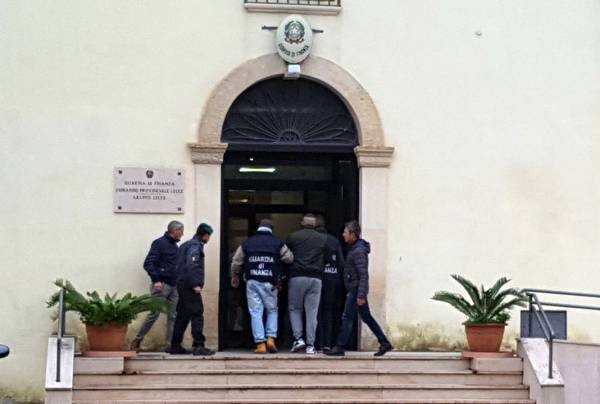Law enforcement authorities from Greece and Italy, supported by Europol and Eurojust, have dismantled a large organised crime group smuggling migrants by leisure boats / pleasure crafts via the Adriatic Sea.
On the action day, law enforcement authorities carried out 13 house searches and arrested 8 individuals of Greek, Italian and Middle Eastern origin suspected to be members of the criminal network. Investigations are still ongoing in both countries.
Active since 2018, the organised criminal group is suspected of smuggling around 150 migrants from the west of Greece via the Strait of Corfu to the southern Italian coast between Otranto and Lecce. The migrants were paying up to €6 000 to travel about 12 hours in leisure boats sometimes as small as ten meters long. Children under 13 years old were among the migrants smuggled this way by the criminal group.
Europol has supported this complex cross-border investigation with the deployment of experts from its European Migrant Smuggling Centre. Europol facilitated the information exchange between concerned law enforcement and prosecution authorities and coordinated operational meetings. Europol also provided constant intelligence analysis on the wider phenomenon and case specific intelligence products.
On the action day, Europol participated in the coordination centre set-up at Eurojust. Europol supported the exchange of officers between Italy and Greece and deployed experts to support the field activities with cross-checking of operational information in real-time. Europol staff permanently deployed to the European Union Regional Task Forces in Athens and Catania supported this operation during the whole period of the investigation.
 In 2010 the European Union set up a four-year Policy Cycle to ensure greater continuity in the fight against serious international and organised crime. In March 2017 the Council of the EU decided to continue the EU Policy Cycle for organised and serious international crime for the 2018 - 2021 period. This multiannual Policy Cycle aims to tackle the most significant threats posed by organised and serious international crime to the EU in a coherent and methodological manner. This is achieved by improving and strengthening cooperation between the relevant services of EU Member States, institutions and agencies, as well as non-EU countries and organisations, including the private sector where relevant. Migrant smuggling is one of the priorities for the Policy Cycle.
In 2010 the European Union set up a four-year Policy Cycle to ensure greater continuity in the fight against serious international and organised crime. In March 2017 the Council of the EU decided to continue the EU Policy Cycle for organised and serious international crime for the 2018 - 2021 period. This multiannual Policy Cycle aims to tackle the most significant threats posed by organised and serious international crime to the EU in a coherent and methodological manner. This is achieved by improving and strengthening cooperation between the relevant services of EU Member States, institutions and agencies, as well as non-EU countries and organisations, including the private sector where relevant. Migrant smuggling is one of the priorities for the Policy Cycle.
Tags
- Operational support
- Information exchange
- Analysis
- Operational
- Mobile office
- Press Release/News
- Press Release
- Other
